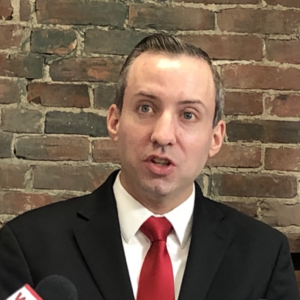President Joe Biden used the veto pen for the first time of his presidency on Monday, killing a resolution that would have blocked a change to the rules governing how retirement fund managers handle their clients’ money. Under the rule Biden rescued, managers no longer have to put “fiduciary” concerns first, but can now factor in Environment, Social, and Governance (ESG) issues like a company’s global warming policy or the racial makeup of its board.
“This bill would risk your retirement savings by making it illegal to consider risk factors MAGA House Republicans don’t like,” Bided said via Twitter. “Your plan manager should be able to protect your hard-earned savings — whether Rep. Marjorie Taylor Greene likes it or not” — a reference to the far-right firebrand congresswoman from Georgia.
But centrist Democrats and Republicans have stepped up to oppose the Biden administration rule change, including Gov. Chris Sununu and Attorney General John Formella.
In fact, changing the rule is so controversial that bipartisan majorities in both the U.S. House and Senate voted for the resolution blocking it. But while moderate Democrats like Sens. Joe Manchin (W.Va.), Jon Tester (Mont.), and Rep. Jared Golden next door in Maine voted for the resolution, New Hampshire’s federal delegation all fell in line with party leadership and voted for the ESG plan.
Under the old fiduciary rules, funds are obliged to maximize returns. Now retirement-fund managers are protected from lawsuits if their ESG investment choices result in lower returns or losses because the funds indulge in climate change or social justice causes.
An analysis reported in The Wall Street Journal found that “during the period from June 30, 2021 (when the data was first available), through Jan. 31, 2023, the market was down overall, by 1.8 percent for the S&P 500 and 3.2 percent for the Russell 1000. ESG funds performed worse, with most losing 2.5 to 6.3 percent. A simple index composed of only neutral companies gained 2.9 percent.”
Despite the controversial nature of the rule change, Hassan has long been a public proponent of the concept, particularly as part of her embrace of climate-change politics. In 2021, she joined Sen. Jeff Merkley (D-Ore.) in calling for a Government Accountability Office report on the potential impact of climate-related risks on the federal government employees’ retirement system, the $762 billion Thrift Savings Plan.
They backed a move to allow federal employees to make ESG investments through expanding fund options. The new Biden rule goes far beyond that, allowing retirement fund managers across the U.S. out of their “fiduciary obligation to solely consider the participants’ financial interest.”
Sununu is not a supporter. He joined a group of 19 GOP governors in a letter opposing the rule change and suggesting the states might use their employee retirement funds to fight back.
“President Biden is playing politics with the hard-earned dollars of retirees across the country. This is big government overreach at its very worst,” Sununu said Monday. “In New Hampshire, we focus on fiscal responsibility to ensure the best returns for our employees.”
And 25 state attorneys general, including New Hampshire’s John Formella, have announced they are going to sue over the rule change.
“This only makes our work to stop this illegal and harmful rule more critical, and we will not waver in those efforts,” Formella said of Biden’s veto.
Greg Moore of Americans for Prosperity New Hampshire says Sununu and Formella are on the right side of the issue.
“It speaks volumes that, with all the terrible legislation that has been passed in the last two plus years, President Biden’s first veto was one to reach into the retirement savings of millions of hard-working Americans to hand it to well-connected companies favored by the left. This really is Robin Hood in reverse and needs to stop,” Moore said.
“Thankfully, General Formella and Governor Sununu are leading the way to protect New Hampshire workers from this heist. We applaud their efforts and hope that they are successful in blocking this scam.”
EDITOR’S NOTE: An earlier version of this story misattributed Greg Moore’s comments to Attorney General John Formella. We regret the error.





